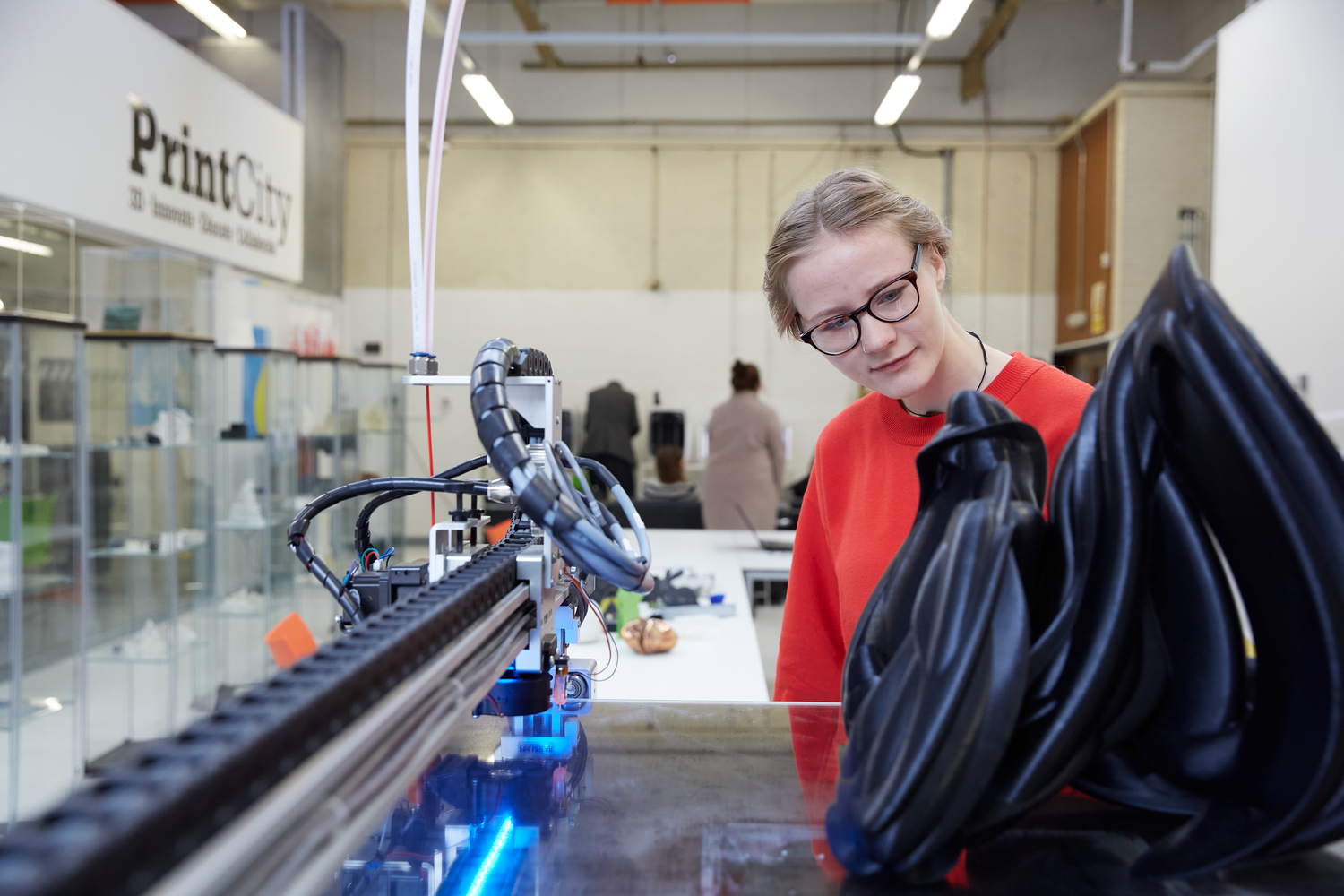Manchester Metropolitan University (MMU) has undertaken a €9.6 million project to transform single-use plastic waste into feedstock for additive manufacturing, as well as intrusion molding – a combination of extrusion and injection molding.
Aiming to provide the waste ‘a sustainable lease of life’ and create a drive for recycled plastic materials, the project will use the feedstock to produce new items like tables, chairs, and bespoke 3D printed products. MMU will lead the project, named TRANSFORM-CE, utilizing its expertise in Industry 4.0, next-generation materials, 3D printing and insight in building a sustainable economy. TRANSFORM-CE is supported by the Interreg North West Europe Programme as part of the European Regional Development Fund (ERDF).
Andy Burnham, Mayor of Greater Manchester, has expressed support for the new initiative as Manchester looks to become carbon neutral by 2038: “The reduction of single-use plastic is a key focus area for Greater Manchester, and we are committed to helping support behaviour change and to reduce our consumption and production of single-use plastics.”
“The TRANSFORM-CE project is a fantastic example of where industry experts, businesses and research bodies can identify real economic opportunities for the revaluing of Greater Manchester’s single-use household plastic, showing that it is possible to create real value from waste through a disruptive and innovative approach.”

We built this PrintCity on plastic rolls
Funded with €9.6m from the ERDF, TRANSFORM-CE aims to divert thousands of tonnes of waste from landfill across northwest Europe. In doing so, the initiative also seeks to create new economic demand for the uptake of recycled plastic materials by businesses, both locally and further afield.
MMU will be joined by 36 partners from a range of disciplines to collaborate on TRANSFORM-CE. The project will see the construction of two, purpose-built plastic recycling plants, one in Manchester and one in the Netherlands, which will take place over the course of the next year.
At MMU’s 3D printing facility, known as PrintCity, the university will work with local businesses to incorporate the recycled plastic materials into their design process through 3D printing technology, leading to the creation of sustainable new products.
PrintCity is a 3D additive and digital manufacturing center that houses manufacturing experts, designers, engineers and students on MMU’s MSc Industrial Digitalisation course. In 2018, MMU revealed plans for a £6 million, 40,000 sq ft 3D printing facility, known as Cheshire 3D Print Hub, as an extension of PrintCity. PrintCity is also home to Additive Live, GoPrint3D’s new additive manufacturing conference launched earlier this year.

Transforming plastic waste into useful products with 3D printing
Single-use plastics are responsible for large amounts of pollution, both within the oceans and on land. It is estimated that 8 million pieces of plastic pollution make their way into our seas every day and 79% of waste plastic ends up in landfills or as litter. Most plastic products are produced from scratch using virgin material and natural resources. Often, these products are used once, and on some occasions, will be recycled into another poor quality product, before becoming waste.
TRANSFORM-CE aims to transform this linear recycling model into a circular one, in order to make products retain their value and be looped into a cycle of reuse. Amanda Reid, Programme Lead for the University’s Waste to Resource Innovation Network and the project manager, explains: “By revaluing our existing single-use plastic feedstock and changing consumption and production patterns from a linear to a circular economy, we should be able to make a real difference to the current single-use plastics concern.”
“Whilst remaining a throwaway society we simply do not have the ability to continue developing, but by making this change to a circular economy and by decoupling economic growth from resource consumption we can start to make a change.”
To create the circular recycling model, the project will convert single-use plastic waste meant for landfill into new products with a higher value using 3D printing. Hard plastic items, such as drink bottles, will be reconstructed into filament for 3D printing a range of products. Lower value plastic including thin films and foils, on the other hand, will be used to make products such as tables and chairs using intrusion molding.
TRANSFORM-CE seeks to offer the filament to businesses as an alternative to virgin plastic feedstock, therefore supporting them in adopting a circular economy. Eventually, the partners hope to create a Plastics Road Map for the future, intending to provide a path for businesses and government policy and define a new economic value for municipal single-use plastic. Professor Craig Banks, Project Director of TRANSFORM-CE, concludes: “It is fantastic that we are leading this circular step change, engaging with both EU research institutes, business and government to support the adoption of a circular economy and wider engagement as part of Industry 4.0, and on a local level, the Greater Manchester Industrial Strategy.”
Other projects leveraging 3D printing as a method for recycling plastic waste into useful products include the Second Nature project from Rotterdam-based research and design studio The New Raw. The Department of Engineering of Aarhus University, Denmark is also leading an initiative to recycle plastic waste into a standardized filament product for 3D printing.
The nominations for the 2020 3D Printing Industry Awards are now open. Who do you think should make the shortlists for this year’s show? Have your say now.
Subscribe to the 3D Printing Industry newsletter for the latest news in additive manufacturing. You can also stay connected by following us on Twitter and liking us on Facebook.
Looking for a career in additive manufacturing? Visit 3D Printing Jobs for a selection of roles in the industry.
Featured image shows single-use plastic waste will be transformed as part of the new project. Photo via MMU.

